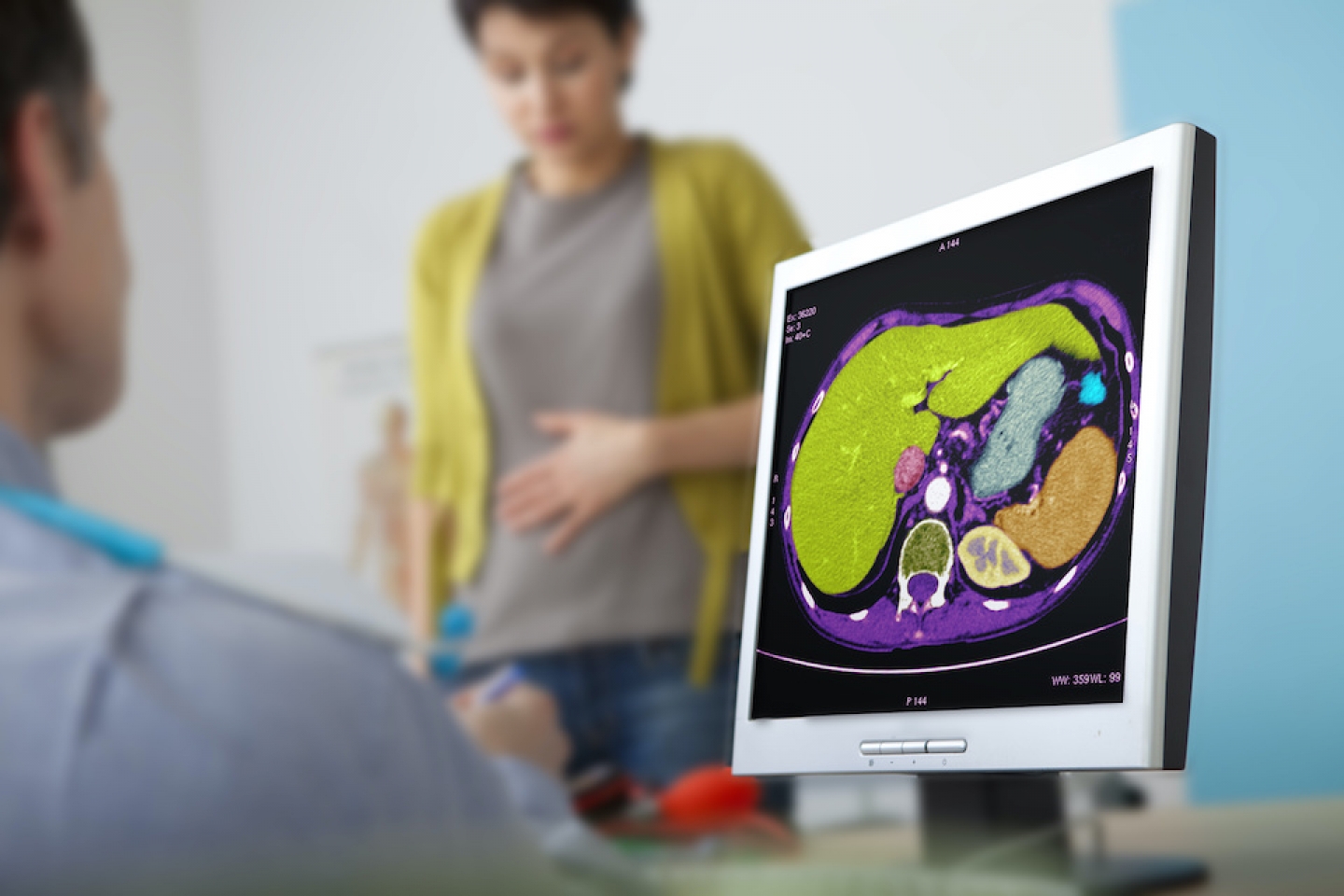
Do you feel full as soon as you start eating a meal or long after you’ve finished? Does eating give you abdominal pain, make you belch, or feel bloated or nauseous? If so, then you may want to speak with your doctor about gastroparesis.
Known as ‘delayed gastric emptying,’ gastroparesis is the stomach’s inability to empty correctly in the absence of physical blockage, explains David L. Carr-Locke, MD, Clinical Director, The Center for Advanced Digestive Care. As a result, the stomach cannot propel food through the digestive tract and into the small intestine, preventing the body from getting necessary nutrients.
“Gastroparesis is an interesting problem that’s under-recognized because it produces symptoms that aren’t very specific and resemble many other conditions, like an ulcer or heartburn,” Dr. Carr-Locke says. “The stomach looks completely normal but does not behave normally. It doesn’t empty the way it should so food is retained longer than it should be.”
The signs and symptoms of gastroparesis are not always obvious. They may include vomiting, nausea, chronic abdominal pain or bloating, lack of appetite, or weight loss and malnutrition. “Those conditions get looked for first and when they’re not found doctors give up and don’t do anything else,” Dr. Carr-Locke says. “People will take over-the-counter products like Tums but don’t get better because indigestion isn’t the issue,” he says. “If a patient has pain in the upper abdomen and nothing else, then it’s not gastroparesis. There’s a whole collection of things that bring patients to our attention.”
Gastroparesis is an adult disease that can occur at any age, from the teens to the 90s, and usually doesn’t affect young children. “We don’t know the prevalence but it’s more common than we think,” Dr. Carr-Locke says. Indeed, it often goes undiagnosed. “Patients can go on for a year or more without a good diagnosis, he notes. “When a patient says, ‘I vomited what I ate yesterday,’ that’s a key clue that their stomach isn’t emptying properly.”
What causes gastroparesis? No one knows for sure, although it is commonly associated with diabetes. “About 50% of gastroparesis patients are diabetic, and usually their diabetes is not well controlled,” Dr. Carr-Locke says. “In the other 50%, we never find a cause or explanation. A much smaller group of patients has had some sort of surgery of the esophagus or stomach, resulting in nerve injury that affects the stomach.”
Opioid pain relievers, antidepressants, and high blood pressure and allergy medications can lead to or aggravate the condition. Fatty foods and carbonation may also trigger symptoms. Other factors that can increase your risk of gastroparesis include:
It’s time to call your doctor if you have:
To diagnose gastroparesis, your doctor will take your medical history, analyze your symptoms, and conduct a physical exam and medical tests, including one that measures how efficiently your stomach empties. “After four hours, 90% of a meal should leave the stomach with very little retained. A stomach that empties less than that is abnormal,” Dr. Carr-Locke says.
You can manage gastroparesis by with certain prescription medications. Surgery may also help, although the easiest and often most effective treatment is dietary modification. Pay attention to the texture of what you eat: liquids and low residue foods are best (applesauce instead of whole apples with intact skins). Avoid acidic, spicy, fatty foods, (which can slow digestion), or foods that are high in fiber (which is difficult to digest).
Also, try eating six small meals a day, instead of three large ones, to reduce the amount of food in your stomach and ease its passage into your small intestine, where digestion and absorption of nutrients happens.
If diabetes is causing your gastroparesis, then your doctor will help you control your blood glucose levels. “If your diabetes is not well controlled, then the first thing is to get it under control,” Dr. Carr-Locke says. “If it is well controlled, then we get involved.”